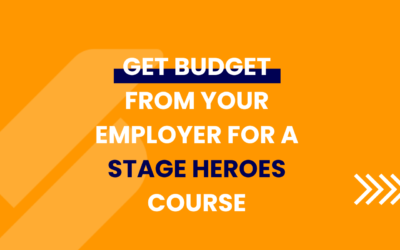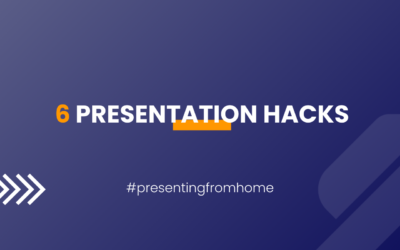Asking for the right Feedback
When you ask someone to tell you what they thought of your presentation, they will probably say things like:
-
- “I think you did well!”
- “I liked it!”
- “I think you were great!”
- “I think you could work on XYZ.”
While these can all be considered feedback, they’re not the constructive type. They’re all personal opinions that won’t help you improve.
Questions that will get you constructive feedback
What you’re looking for is the feedback that will help you reach your goals when public speaking. To feel confident you’ll reach your goals in the future, you need to check if you reached your goal with your current presentation. Do this by asking someone who was in your audience (or better yet, a few people) the first question, then ask yourself the second one to reflect on their answer:
-
- What do you remember from my presentation?
- Is it what you wanted them to remember?
- Has my presentation made you see things differently?
- Did you manage to change their minds?
- What will you do differently after hearing my presentation?
- Have you inspired a behavioural change?
- How would you explain the points I made to someone else?
- Did they understand the points you were trying to make?
People are often willing to share feedback, but don’t know how to respond to open-ended questions like ‘What did you think?’ Asking specific questions will help you get the answers you’re looking for to check if you reached your goals with your presentation, and if your message came across the way you intended it to. To make sure you ask the questions that will get you the specific answers you’re looking for to improve your presentation, keep this list in mind.
“What did you think of my presentation?” won’t get you the results you want. So what do you ask instead?

Questions on how to improve
If you ask ‘How can I improve?’, you’ll likely get the same type of answers as to when you ask ‘What did you think of my presentation?’ Instead, try these options;
To Avoid Confusion
In which part did I confuse you? or Which part of the presentation did you find confusing? Their answer will let you know what to simplify the next time around, to make sure your message comes across completely and your audience understands it completely.
To Strengthen Your Arguments
You want to make sure that aside from being crystal clear, your presentation makes a strong case that persuades the audience to adhere to your message. To figure out which arguments might need strengthening, try asking: When did you disagree with me? Knowing when your audience disagrees with you, shows you where to expand or improve your arguments.
To Keep Your Audience Engaged
A big part of delivering an engaging presentation is to keep the energy level of your audience high. To figure out if any parts of your presentation were lacking in energy, ask:
During which part(s) did you find your mind drifting off? Knowing when your listeners lost interest for a while will allow you to put more energy in that part of the presentation.
Survey your audience
Now that you know which questions will get you the constructive feedback you’re looking for, don’t forget to survey your audience after each presentation. While it can be tempting to ask all the questions to get as much feedback as possible, stick with just a few. The shorter your survey, the higher your chances of getting responses. Plus, you won’t be overwhelmed with feedback in lots of different areas if you cover a select amount. So choose which areas you’re looking to work on for that particular presentation, then focus your questions on getting specific feedback for those categories.
If you found this post helpful, share it on social media to help others step up their public speaking game as well.
More recent posts
Ask for training budget
How to get your employer to pay for your Stage Heroes courseWhen you start to become a more skilled presenter, guess who benefits besides you. Your company. I see it every day. A large company...
presentingfromhome hacks
#Presentingfromhome HacksThe covid-19 pandemic doesn’t just make us work from home, it makes us present from home. Presenting from home can be challenging because of the lack of physical human...
The first business presentation to ever inspire me
The first business presentation to ever inspire meI still remember the first time I was truly inspired by a business presentation. It was in my first real job. I worked at a software company called...


